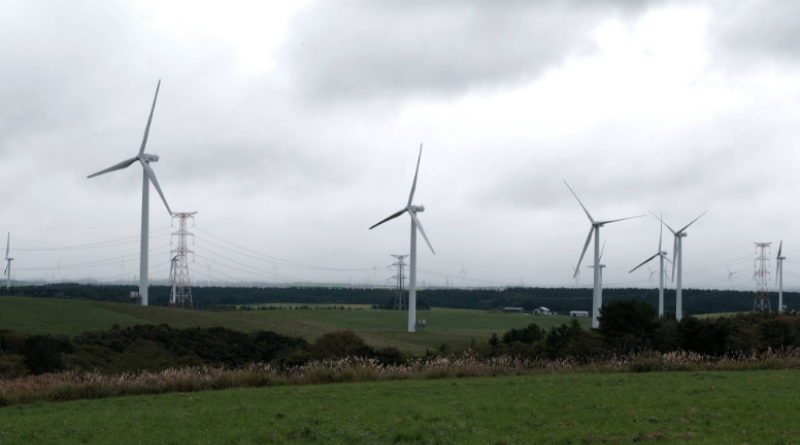Japan offers lifeline to ESG investing amid backlash overseas
Environmental, social and governance (ESG) investment is booming in Japan even as it is stagnates globally, with the country’s middle-of-the-road approach making it more palatable to corporations and the financial markets and making it a more sustainable proposition over the long term.
“The trend in Japan is clearly different from the global one. The pace has not slowed down,” said Yasunobu Katsuki, senior sustainability strategist at Mizuho Securities.
ESG compels investors to consider other priorities beyond profit when deploying capital. It is increasingly under attack for mixing politics and business, especially in the United States.
Total global volume of ESG bonds, which includes sustainability bonds, green bonds and social bonds, peaked at about $1 trillion in 2021 and has fallen slightly since then, according to Environmental Finance.
In Japan, the volume of sustainability bonds doubled from the 2021 level to ¥6.7 trillion in 2023, the Japan Securities Dealers Association reports.
“I believe it has passed the tipping point,” Katsuki said of the market in Japan.
He credits in part the country’s 2020 pledge to achieve net zero greenhouse gas emissions by 2050.
Before the target was announced, domestic companies had been aware that they had to do something to contribute to decarbonization, but they didn’t really know what to do.
A hard deadline has helped companies plan and take specific action, Katsuki said.
The government also aims to boost green investment with the world’s first sovereign “transition bonds.”
Japan Climate Transition Bonds, which debuted in February, are funding a wide variety of projects and technologies to help accelerate Japan’s shift to net zero.
To promote its green transformation, the country is looking to attract about ¥150 trillion in investment, with ¥20 trillion of transition bonds issued over the next decade.
Still, ESG and related initiatives aren’t faring so well globally.
In the first six months of this year, about 170 new sustainable funds were created globally, down from 325 in the same period last year, Morningstar reports.
In the U.S., some states have passed anti-ESG legislation, while a number of U.S. companies have eliminated the ESG label from job titles and internal business division names.
The rise of the right-wing and nationalist politicians and losses sustained by green parties in recent European Parliament elections will likely lead to increased political pressure to water down ESG regulations.
For the past several years, Europe has been pursuing ambitious climate change policies, but momentum has taken a hit amid voters’ concerns about inflation and the high cost of living.
Many citizens and companies in Europe might have wanted something of a break from the ESG and sustainability movement, as “regulations were only getting stricter,” said Makiko Hashizume, an expert in ESG and sustainable finance at the Japan Research Institute.
“These trends in the U.S. and Europe are concerning for people like us in the sustainable finance sector.”
Analysts said Japan is somewhat insulated from the anti-ESG sentiment overseas.
The country has not imposed overly strict regulations. While Japan has often been a target of criticism for being soft on businesses dealing with fossil fuels, the approach may have successfully contained the frustration of companies and investors.
“Japan has not been doing anything radical that would spark opposition to sustainability, so I don’t think the situation will turn out like it has in the U.S. or Europe,” Hashizume said.
Katsuki echoed the point, saying that the Japanese market will be largely unaffected, adding that he is optimistic on the underlying global trend as well.
“Climate change, biodiversity and human rights have become global agenda items, so I don’t think the movement will backpedal,” he said.
Katsuki noted that since the U.S. has the world’s largest bond market, it is important to carefully monitor its policies related to ESG.
In light of the anti-ESG sentiment in the U.S. and Europe, analysts said that Japan can play a key role in driving sustainable finance globally, especially in Asia.
Japan’s sustainable bonds have often drawn criticism from overseas investors, since the standards are not as high as those in Europe, and foreign investors are skeptical whether some of the supported projects are really effective.
When Japan listed ammonia or hydrogen co-firing with existing coal plants as possible projects to be financed by its sovereign transition bonds, environmental groups complained.
Not many overseas investors have shown an appetite for Japanese ESG investment products, and interest rates have been relatively low in Japan for decades.
As the Bank of Japan is finally shifting toward higher rates, it’s possible that more investors will pay attention to the Japanese market.
“I think Japan has a huge potential,” Katsuki said, adding that the Southeast Asian nations have praised Japan’s pragmatic green transition strategy.
Japan has proposed what is known as the Asia Zero Emission Community to strengthen cooperation on decarbonization with these countries, many of which heavily rely on fossil fuels, although the project currently focuses on many unproven technologies. Through this initiative, Japan is looking to promote transition finance as well.
“Japan may have been a bit slow, but its approach has succeeded in containing opposition,” said Hashizume of the Japan Research Institute.
Source: .japantimes.co.jp




